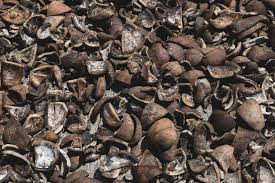By Nancy Mehlert, MS
We often emphasize how important it is to choose healthy oils and we describe them as “undamaged”. Typically, once man begins to extract oil from its source, the goal is to find the fastest, cheapest way to extract the oil from the source, maximizing the amount of oil extracted, then treating the oil to make it look, smell and taste good, and last as long as possible. All of this is accomplished by using high temperatures, extensive refining and chemicals. Unfortunately, not only are the health benefits of the oils lost in this processing, but can actually cause harm. Here’s the scoop you need to know about two of the most important oils we recommend for everyday use, coconut oil and olive oil.

In the coconut industry, conventional coconut is dried in a wood-fueled kiln or in the sun over a period of several days. The result is called copra and it is packed tightly into burlap type sacks that hold the meat of about 400-500 coconuts. These bags are then moved through a very slow, time consuming transport to a large, industrial oil mill, usually in Europe or Asia. As a result of unhygienic drying methods, humid tropical conditions, bulk shipping and long distances with lengthy delays, the copra develops mold on it. These molds can also result in carcinogenic aflatoxin contamination. The oil extraction begins using large-scale, high pressure, energy intensive equipment and chemicals such as hexane to remove the mold from the copra. The result is a very low quality, damaged coconut oil with little to no available health benefits. This is why we emphasize organic, non-GMO, expeller pressed or raw and unrefined coconut oil so that you can benefit from the undamaged oil.
In the olive oil industry, a similar process occurs. Heat and chemicals are used to extract every last bit of oil from the olives, and these chemicals degrade the final product. To make matters worse, you may have recently seen the CBS News show 60 Minutes which exposed the hazardous chemicals and mislabeling of olive oil coming out of the Mediterranean. According to Italian authorities, as much as 80% of the olive oil investigated uncovered fraudulent labeling and false documentation. In one investigation of 10 tons of colored table olives, the coloring agent added was a prohibited and dangerous copper chlorophyllin complex also known as E141. “Made in Italy” claims were fraudulent and other illicit substances were found in production areas. Pesticides, mineral oil hydrocarbons, plasticizers, polycyclic aromatic hydrocarbons and styrene were also found in the oils. For these reasons, we HIGHLY recommend First Cold Pressed, Organic, Non-GMO verified oils from small family owned farms, and more recently, from California.
Healthy undamaged oils are essential for good health but unfortunately highly processed and damaged oils are dangerous to your health, contributing to inflammation and disease. Be sure to make good choices when purchasing your oils.
References: http://olivecenter.ucdavis.edu/research/files/report041211finalreduced.pdf http://www.kokonutpacific.com.au/production/CopraKP.php

